
Millennial Money: How to use ChatGPT to plan your next trip
Artificial intelligence chatbots like ChatGPT offer a novel way to research travel plans
1970-01-01 08:00
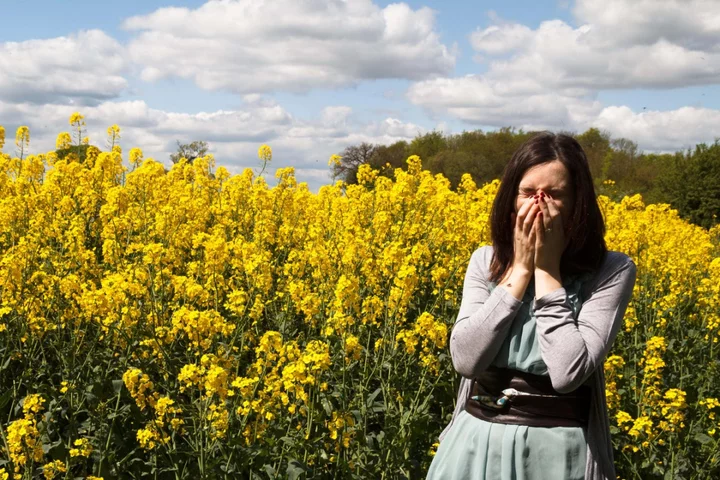
7 hay fever hacks to ease your symptoms this summer
According to health officials, people sought advice for hay fever symptoms once every three seconds on Sunday. And today, the Met Office predicted the pollen count would be “very high” in most of England and Wales.Hay fever is usually at its worst between March and September – and right now, thousands of people affected are desperate for a solution to their pollen-induced runny noses, itchy eyes and tickly coughs, and other irritating symptoms. The hay fever pages on the NHS.uk website reportedly received 122,650 visits last week alone. So, what can you do to help with hay fever symptoms? 1. Don’t rub your eyes “Red, itchy, swollen eyes are often a real problem for hay fever sufferers,” explained pharmacist Sid Dajani, from Golden Eye Eye Care. “As tempting as it is, don’t rub your eyes. Clean them free of pollen frequently, with cotton lint and cold water, and treat the symptoms immediately with eye drops or eye ointment containing propamidine isetionate.”2. Don sunnies and keep your clothes cleanReducing your exposure to pollen, however possible, can really help. Dajani added: “Wear wrap-around sunglasses to protect your eyes when outside, and have a shower when you get in from work and put your clothes straight in the wash to help remove all pollen. It’s also best to avoid drying clothes outside.”3. Think about your diet What you eat may have an impact too. GP Dr Nisa Aslam suggested: “Stick to an anti-inflammatory diet, with plenty of fruit and vegetables, beans, grains and oily fish, whilst limiting processed food high in fat, sugar and salt. Look for anti-inflammatory, antioxidant herbs, like chamomile, ginger, nettle and turmeric. These can be consumed in the form of supplements or beverages.”4. Protect your nostrilsDr Adam Fox, allergist and advisor to Clarityn, said: “Pollen balms such as petroleum jelly rubbed around the rim of the nostrils can help trap pollen before it enters the nose, and salt water nasal sprays help rinse pollen particles out of the nose, preventing them from sitting in there and causing more symptoms.”5. Keep the windows shut As tempting as it may be to fling windows open at this time of year, Dijani said: “Keep windows, including car windows, and doors shut. Venture out as little as possible. Towns and cities are no more friendly to hay fever sufferers than the countryside, due in part to more extensive ‘greening’ of urban areas.” 6. Prepare for the pollen count Checking to see when the pollen is particularly high can help you prepare. “If you know you have symptoms every year, then it makes sense to be prepared in advance,” said Fox. “If you require a nasal spray, then starting to use it before the season starts will make it much more effective. For adults, these can be brought over the counter, whilst children will need a prescription.” 7. Stay in when the count is really high And if symptoms are still really getting to you? “Avoid going outside when the pollen count is at its highest – in the middle of the morning or the early evening,” said Dajani.
1970-01-01 08:00
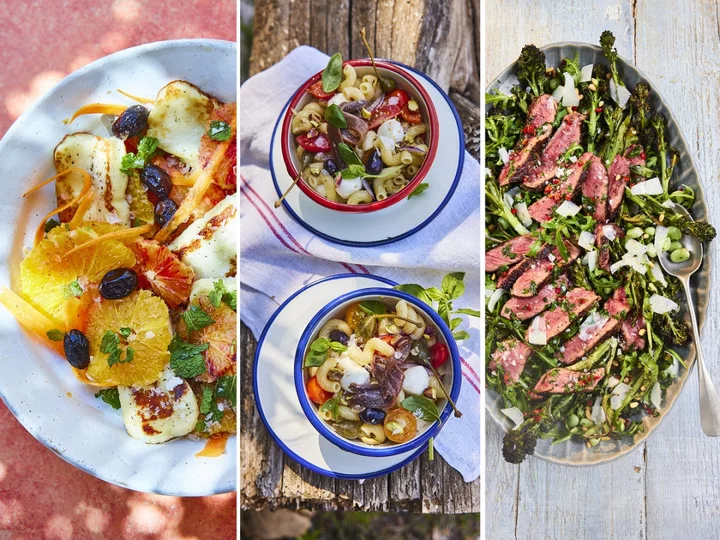
BBQ salad recipes without a soggy lettuce leaf in sight
BBQs are just as much about the side dishes as they are the burgers and various grilled meats, but that doesn’t mean you’re limited to serving soggy lettuce. These Maldon Salt salad recipes deliver on everything from a fresh and vibrant orange and carrot salad with halloumi, to a light but flavour-packed pasta salad. Or get your greens in with a steak salad with broccoli, parmesan, and a chilli and herb dressing. Orange and carrot salad with grilled halloumi This orange and carrot salad, paired with barbecue grilled halloumi creates the perfect salad for any summer dinner party. Ingredients: 2 Navel oranges 2 blood oranges 2 carrots 200g halloumi cheese 2 tbsp black olives 2 sprigs of fresh mint 4 tbsp extra virgin olive oil Maldon Salt 1 pinch of cumin Freshly ground black pepper Method: 1. Wash, dry and de-leaf the fresh mint. Set aside a few whole leaves and chop up the rest finely. Juice ½ a blood orange, filter out the excess bits/pips with a sieve, then season the juice with Maldon Salt and pepper. Add the olive oil, cumin and chopped mint and mix together well. Put this salad dressing in the fridge for later. 2. Cut the peel and pith away from the rest of the oranges with a very sharp knife until the pulp is completely clean. Cut each orange into segments and toss into a salad bowl. Using a vegetable peeler, finely shred the peeled carrots into the bowl, and add the olives and salad dressing together. 3. Chop the halloumi into thin slices, lightly brush with olive oil and then grill on the barbecue until golden on both sides. Serve together with the salad. Add a pinch of Maldon Salt for seasoning. Pasta salad The simple yet delicious pasta salad is easy to make, perfect for the hot summer months when craving for something light but packed full of flavour. Ingredients: 350g short pasta 150g cherry tomatoes 1 bag of mini mozzarella balls 16 black olives 8 anchovy fillets in oil 2 tbsp chopped toasted pistachios or pine nuts 16 capers ¼ medium red onion 4 tbsp extra virgin olive oil 4 sprigs of fresh basil with small leaves Maldon Salt Black pepper Method: 1. Wash, dry and chop the tomatoes into eighths, place them in a salad bowl and season with Maldon Salt and pepper. 2. Add the drained mozzarella balls, olives, capers and chopped onion and drizzle with olive oil. Drain the anchovies and add to the mix. Wash and dry the basil and then remove the leaves from the stem. 3. Cook the pasta al dente in plenty of salted water, according to the instructions on the packet, then drain and cool under cold running water. Once fully drained, mix the pasta in with the rest of the ingredients in the salad bowl. 4. To plate up, place the anchovies on top, sprinkle on the pistachios and basil leaves and serve at room temperature. Steak salad with purple broccoli, parmesan, and chilli and herb dressing A beautiful seared steak salad recipe paired with the best in season purple sprouting broccoli and broad beans. Ingredients: 400g sirloin steak 100ml plive oil, plus extra for frying A handful of chopped parsley A handful of chopped coriander 1 red chilli, deseeded and finely chopped 200g purple sprouting broccoli 150g broad beans, blanched 50g wild rocket 25g aged parmesan 20g toasted pine nuts A pinch of Maldon Salt Method: 1. Preheat the oven to 180C. 2. Begin by cooking the steak. Make sure your meat is out of the fridge 30 minutes before you want to cook it, so it has time to come up to room temperature. Get a frying pan or griddle pan on the heat get it to a nice high heat. Drizzle some olive oil onto your steak and season generously with Maldon salt and cracked black pepper. Once the pan is nice a hot, place the meat in and allow it to sear and sizzle on one side first. Depending on the size of your steak this can take a good 5 minutes on each side. You want good, deep caramelization on all sides of the meat. 3. While the meat is cooking place the purple sprouting broccoli onto a baking tray and drizzle over some oil and a pinch of Maldon salt. Place the tray into the oven and roast the broccoli for 10-12 minutes until tender and starting to char slightly. 4. Once the steak is cooked to your liking – we’ve served it medium rare here – remove from the pan and leave it to rest on a chopping board. The resting time is key! It helps keep all the cooking juices to stay absorbed inside before slicing. 5. While your meat rests, prepare the rest of the salad. Place the olive oil in a small bowl and mix with the chopped parsley and coriander, the diced red chilli and some Maldon salt and cracked black pepper. Set this dressing aside. 6. On a large platter scatter over the wild rocket. Next top this with the roasted broccoli and the blanched broad beans. 7. The meat will be rested now, so carefully slice at a diagonal into thin slices. Place this over the salad. Any meat juices that are left on the board can be carefully poured into the bowl with the dressing ingredients. 8. Drizzle over the dressing, shave some parmesan across the top and sprinkle over toasted pine nuts. Give the whole salad a final pinch of Maldon salt and some cracked black pepper and then serve. Recipes from Maldon Salt. Find more at maldonsalt.com/recipes-tips-blog
1970-01-01 08:00
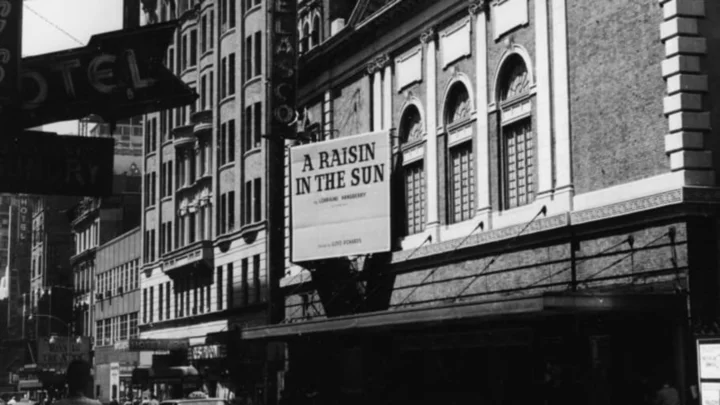
7 Facts About Lorraine Hansberry
By the age of 34, Lorraine Hansberry was already the author of two plays that had appeared on Broadway. She should have been on course for a long and successful career—but tragically, that wouldn't happen. Still, her legacy has endured.
1970-01-01 08:00

Donald Trump due in Miami court to face charges over classified documents
He is expected to deny dozens of charges relating to the handling of US government secrets.
1970-01-01 08:00

A Greenwashing Lawsuit Against Delta Aims to Set a Precedent
As tranquil instrumental music plays over gauzy images of nature, a woman’s voice-over begins. “Isn’t it a paradox,”
1970-01-01 08:00

Tory Lanez: How the Megan Thee Stallion shooting trial played out
Rapper Tory Lanez is being sentenced for shooting Megan Thee Stallion in the feet. Here's the background.
1970-01-01 08:00
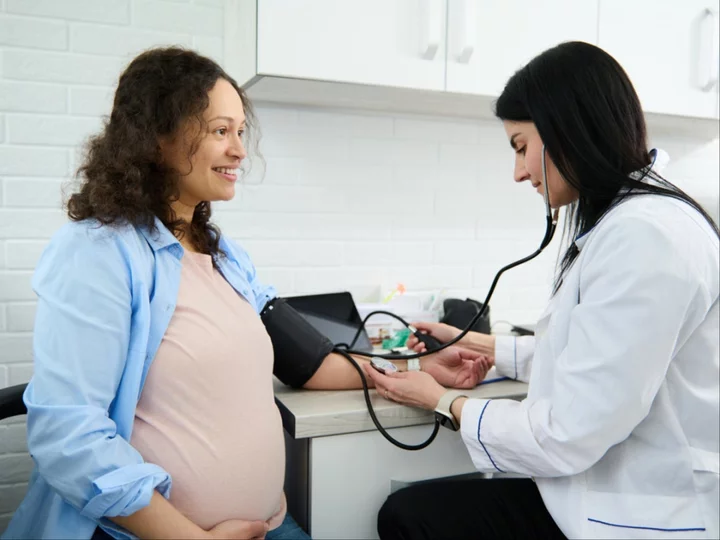
What is eclampsia and how rare is it?
Eclampsia is a rare complication of pre-eclampsia and can cause fits, seizures and strokes. The condition eclampsia describes the type of convulsion or fit – an involuntary contraction of the muscles – pregnant women can experience from week 20 of the pregnancy or immediately after the birth. What are the symptoms/ warning signs? Pre-eclampsia is a condition that affects some pregnant women, usually during the second half of the pregnancy (from 20 weeks) or soon after the baby is delivered. Early signs of pre-eclampsia include having high blood pressure (hypertension) and protein in your urine, according to the NHS. It’s difficult to notice the signs, but they can be picked up during routine antenatal appointments. Further symptoms of pre-eclampsia include a severe headache, vision problems, such as blurring or flashing, pain below the ribs, vomiting and sudden swelling of the face, hands or feet. How common are pre-eclampsia and eclampsia? Most cases of pre-eclampsia do not lead to serious problems or complications, but there is a risk that the mother will develop fits and seizures, called eclampsia, which can be life-threatening for the mother and baby. However, this is rare. According to the NHS, the earlier pre-eclampsia is diagnosed and monitored, the better the outlook for the mother and baby. Most women make a full recovery after having a fit, but they can put the mother and baby’s health at risk. According to the pregnancy charity Tommy’s. eclampsia is quite rare in the UK, with an estimated one case for every 4,000 pregnancies. What are the causes of pre-eclampsia? Though the exact cause of pre-eclampsia is not known, its thought to occur when there is a problem with the placenta – the organ that links the baby and mother’s blood supply. Who is affected by pre-eclampsia? A number of health conditions can increase your chances of developing pre-eclampsia, including having diabetes, high blood pressure or kidney disease before pregnancy. Having an autoimmune condition, such as lupus or antiphospholipid syndrome, or having high blood pressure or BMI, can also increase your chances of pre-eclampsia. A family history of the condition, being older than 40, or having more than 10 years since your last pregnancy can also increase your chances of pre-eclampsia. Expecting multiple babies, like twins or triplets, may also put a patient at risk. What are the treatments for pre-eclampsia? After being diagnosed with pre-eclampsia, a patient will be monitored closely by a specialist to see how severe the condition is. According to NHS guidance, the only way to cure pre-eclampsia is to deliver the baby, hence why monitoring the mother and baby is crucial until the child is delivered. Patients are often offered medicine to lower their blood pressure until the baby is born. Read More Tori Bowie: Pregnant US Olympic sprinter’s cause of death revealed Vegan family writes letter to neighbours requesting they close their windows when cooking meat Kelis addresses Bill Murray dating rumours for the first time How to take care of your mental health at festivals How to stop hay fever fast? Only one thing worked for me Jamie Foxx’s rep addresses conspiracy Covid vaccine left actor ‘paralyzed and blind’
1970-01-01 08:00
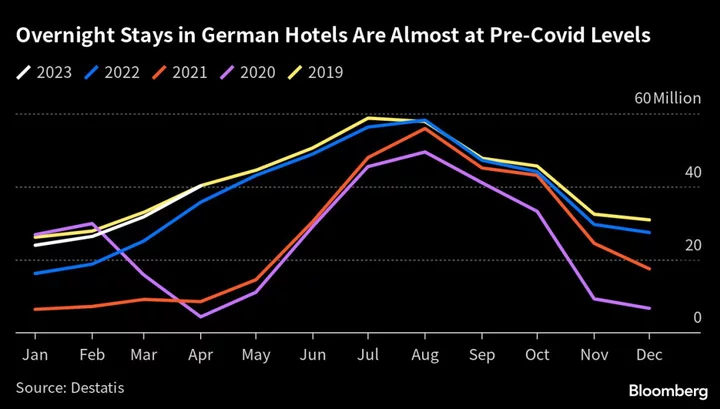
German Tourism Is Almost Back to Pre-Covid Levels
Germany’s tourism industry is showing signs of shaking off the legacy of the Covid-19 pandemic, bolstered by a
1970-01-01 08:00

How to take care of your mental health at festivals
Festival season is upon us, with Glastonbury taking place near the end of June. While we’re well versed in how to take care of our physical health at a festival (yes, you really should take a hat in case the sun comes out), what about the mental health side of things? Mike McAdam, 38, co-founded Blink Mental Health, which provides mental health support at festivals. After his mental health deteriorated in 2017, McAdam found his condition was too serious for primary care, but not extreme enough for secondary care. He accepts there are lots of brilliant charities and campaigns encouraging people – particularly men – to talk about their mental health and reach out if they need it, but “it’s incredibly difficult to get help”, he suggests. This is where the idea for Blink came from – the ultimate aim is to set up a ‘Blink Bank’ providing money for private therapy for those who are stuck on waiting lists. McAdam accepts that is “really ambitious and would cost millions”, so as a starting point, Blink provides wellbeing at festivals. Blink is going to six festivals this summer – including Boomtown and Wilderness – where it will set up dedicated tents which McAdam calls “a place to relax, get away from things [and] take your mind off the festival”, with bean bags and mindful activities such as colouring and jigsaw puzzles. Blink also offers between 12 and 18 hours a day of free talking therapy with fully qualified and accredited psychologists or psychotherapists. “It’s not just about diagnosed mental health conditions, everyone should look after [their] mental health,” McAdam says. He suggests festivals are a great place to open up conversations around mental health. “At festivals, people tend to explore new experiences – whether that’s food, music, dance or activities – so one reason we go to festivals is because people want to explore new experiences, [and] we find them more open-minded to talk and access therapy,” he says. Plus, he accepts festivals can be “full-on”, and don’t always have “that space where you can chill out”. While McAdam suggests early intervention is key when dealing with mental health, there are some things you can do to do yourself if you’re going to a festival this summer… Be prepared Before heading off to the festival, McAdam recommends being as prepared as possible. This could include “taking earplugs, a decent sleeping bag, making sure we have clothes for all weathers if we can”, he says. “Because if you can’t get a decent night’s sleep, if you’re absolutely freezing, that will affect your physical and mental health.” Lowri Dowthwaite-Walsh, senior lecturer in psychological interventions at UCLan, agrees with the importance of planning ahead. “If you have any vulnerabilities, such as pre-existing mental health difficulties or known triggers, plan ahead for how you can manage these,” she says. “By having a plan of what to do in the event of feeling low or anxious, you’ll be able to enjoy your time more and be more relaxed.” Stay well-fed and watered McAdam recommends taking a water bottle you can refill throughout the festival, and adds: “Try and eat regularly.” He suggests it can be “very, very easy to forget about eating or drinking [water]” at a festival, or you might not want to buy much food as it can be expensive on-site. However, taking your own snacks and bottle could go a long way to helping you be as comfortable as possible. Dowthwaite-Walsh adds: “Long days, warm weather and alcohol consumption can dehydrate you and this can lead to headaches, feeling fatigued and struggling to concentrate and make good decisions” – which means drinking plenty of water is crucial. Camp wisely “Try and camp with people you feel safe with,” is McAdam’s advice. And if you’re going to a festival with different options for camping – for example, Wilderness has a quiet camping area – choose the place that suits you best. If you’re going solo, McAdam says: “Try and find the area that may suit your needs.” Be drink and drug-aware “Alcohol and drugs have a direct impact on your mental health, so it’s important to discuss your choices with friends and people you trust. You can also get support from first responders at the festival if you have issues with any substances,” says Dowthwaite-Walsh. Take the pressure off “There’s a huge, huge thing about fear of missing out”, McAdam says. “They’re extremely exciting places, [with] so much going on. “There won’t be an opportunity to explore and see everything that you may want to, so as hard as it is, please do not try and put too much pressure on yourself trying to get around everything you want to see.” This could “burn you out and add additional stress”, he says, so McAdam recommends being “realistic about what you can see”. Stay connected If you are with friends, Dowthwaite-Walsh recommends staying connected. “Being able to enjoy yourself with friends helps to deepen the experience of a festival but also keeps you safe physically and psychologically,” she suggests. She also recommends living in the moment as much as you can. “Have fun, enjoy the moment and savour it. Taking pictures to share with family and friends is a great way to create memories, but also remember to live in the moment and soak up the full experience” Read More Charity boss speaks out over ‘traumatic’ encounter with royal aide Ukraine war’s heaviest fight rages in east - follow live 5 of the best lawnmowers How should we be talking to our daughters about money? STI cases at record highs: 6 things everyone needs to know about sexually transmitted infections
1970-01-01 08:00

BTS 10 years on: Superfans make pilgrimage to Seoul to celebrate the K-pop band that conquered the globe
BTS has racked up more than 20 Guinness World Records, won several global awards, championed Asian representation in the global music industry and paved the way for other K-pop acts to follow in their footsteps.
1970-01-01 08:00
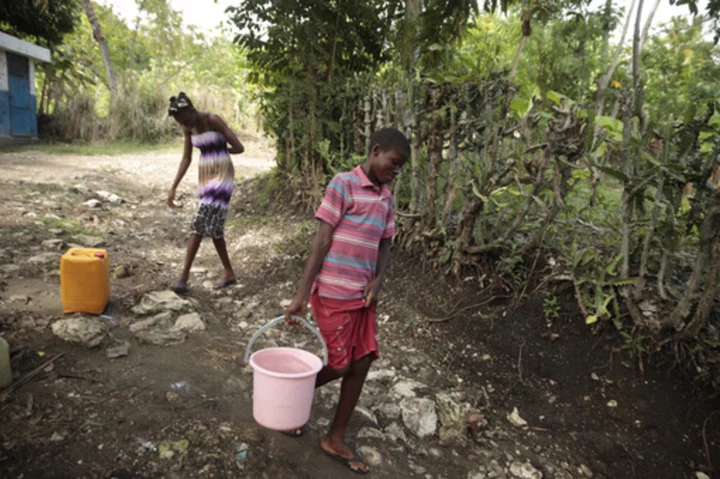
30,000 Haitian kids live in private orphanages. Officials want to shutter them and reunite families.
Haiti’s government is stepping up efforts to remove hundreds of children from orphanages across the country and reunite them with their parents or relatives
1970-01-01 08:00
